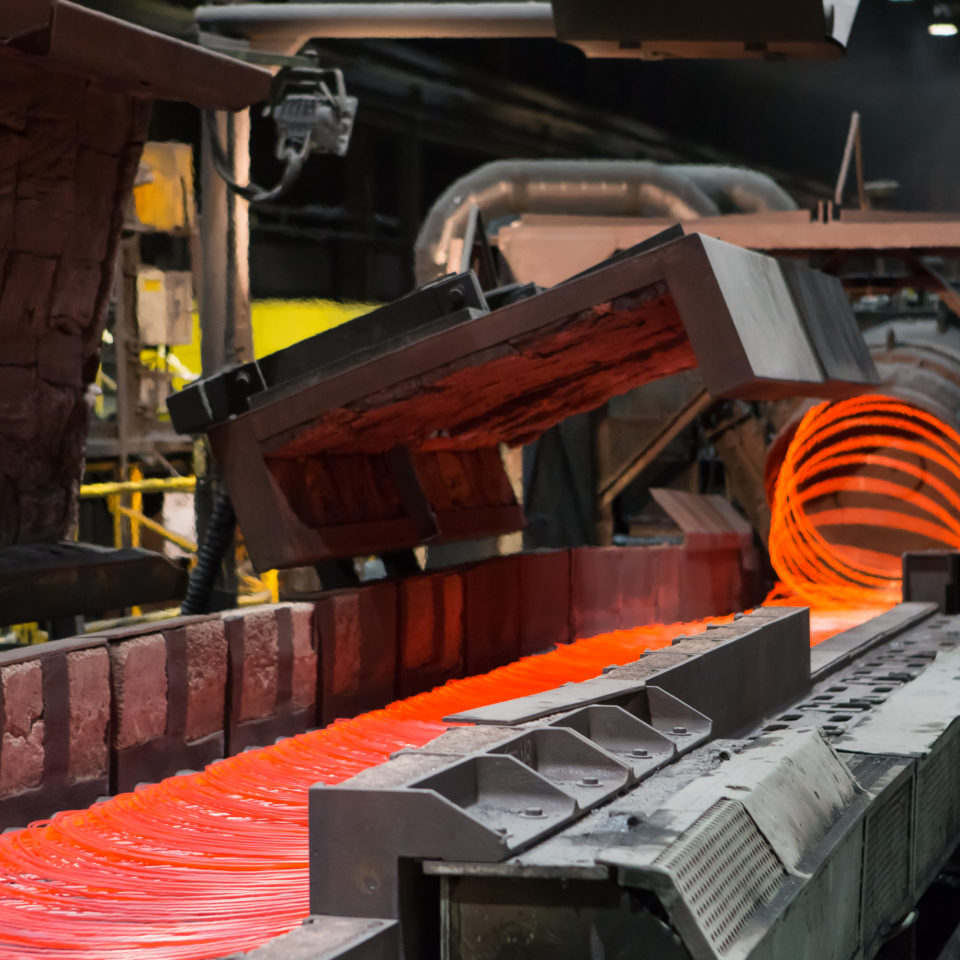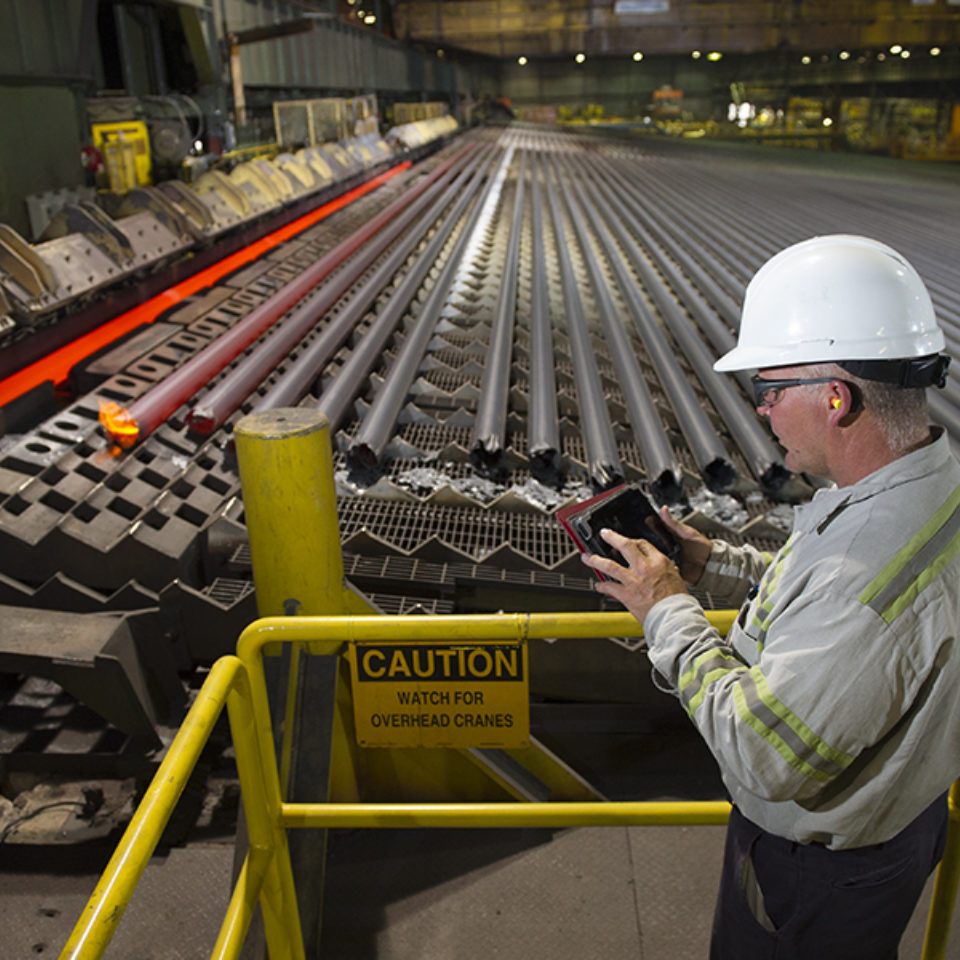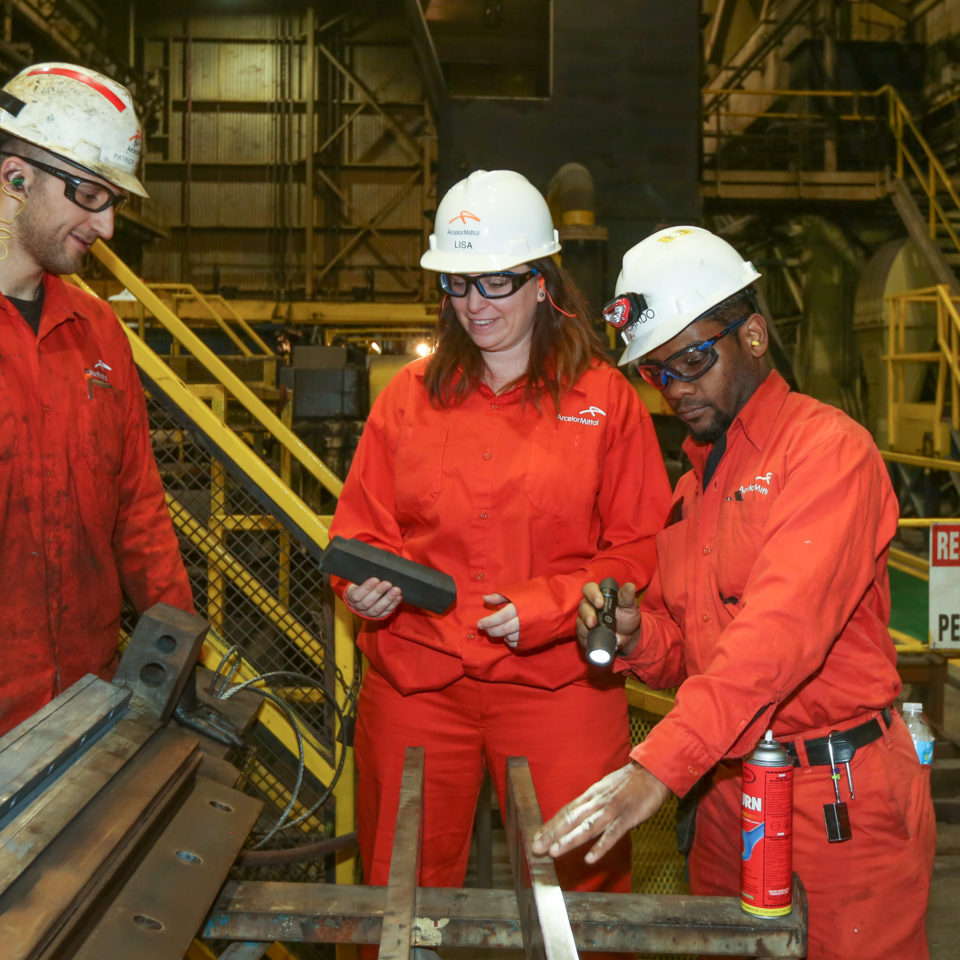Climate + Energy
- Energy consumption has dropped 12% in 2018 from 1990 levels.
- Absolute greenhouse gas emissions are down over 17%.
Canada’s steel producers have the ambition to achieve net-zero CO2 emissions by 2050.

Greenhouse Gas Performance
Canadian steel producers are committed to the reduction of greenhouse gases. The industry has a proven track record for reducing carbon emissions achieved through improving its overall operational performance; adopting strong energy practices, such as heat recovery and cogeneration; improving energy efficiency throughout its operations; and optimizing raw material selection and use.
Domestic Carbon Advantage
There are substantial greenhouse gas savings through the use of Canadian steel in domestic projects. The industry estimates that on transportation emissions alone, Canadian steel has roughly three times less greenhouse gas emissions than through using imported steel.


Energy Efficiency and Conservation
As the third biggest input to the steelmaking process, energy efficiency is a priority for all Canadian steel producers. It is not surprising then that the steel sector continues to improve energy efficiency as a means of bettering its competitive position and improving its greenhouse gas performance.
Technological Advancements
CSPA members are undertaking critically important research in support of the longer term decarbonization of the steel sector, as there are limited technological solutions available to reduce greenhouse gas emissions. An important collaboration is the cooperative research agenda underway between Canmet Labs and the Canadian Carbonization Research Association to create new technological solutions to this pressing global challenge. An overview of the CSPA and CCRA’s near and long term research agenda for reaching net zero has been developed.

